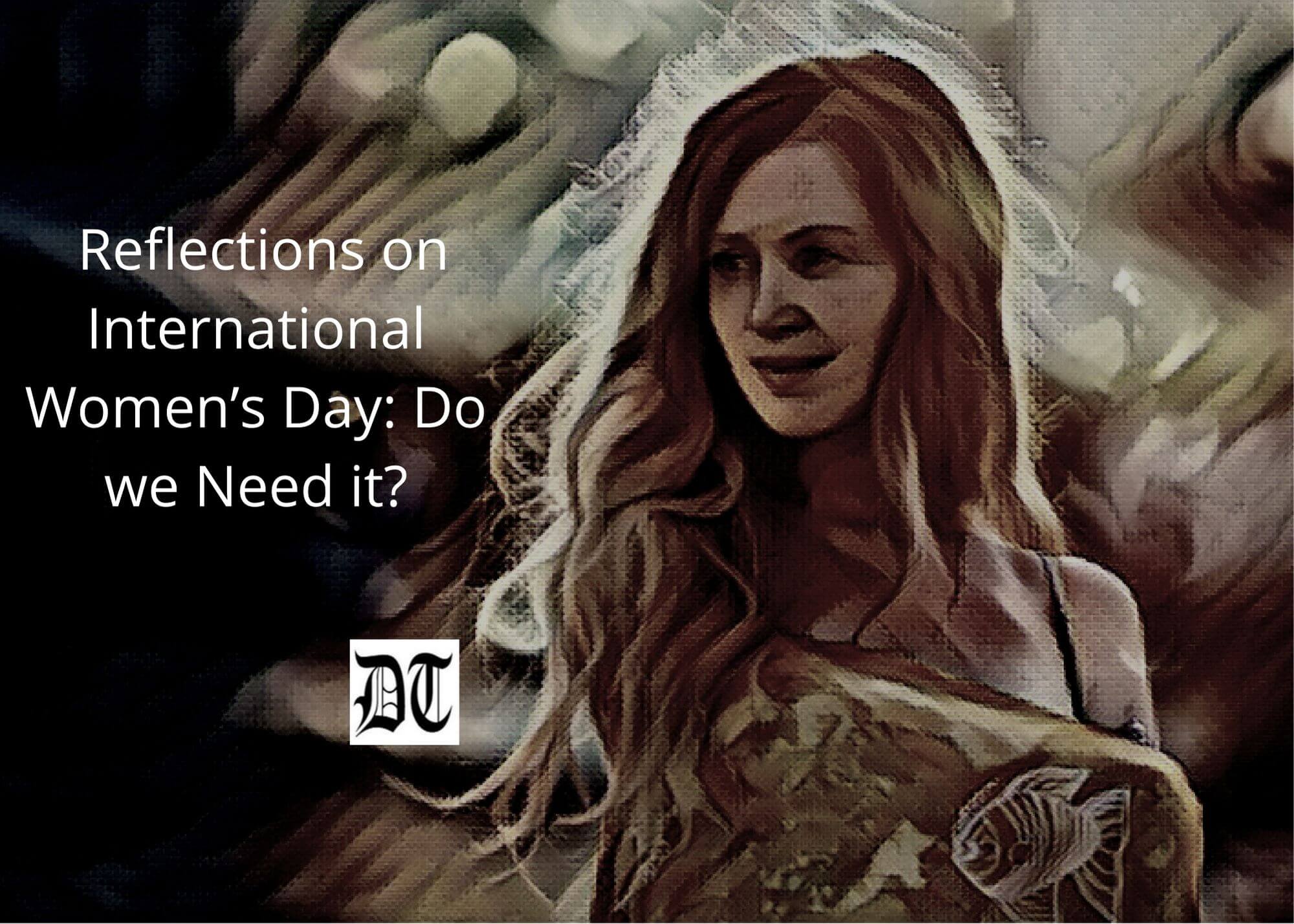It is neither easy for men, nor women to transition their changing roles. Women are reluctant to give up the mystique of motherhood. And men have to prepare themselves not only for social ridicule but also self-doubt as diaper-changing dads. Payal tells us how the age-old types are crumbling, in the weekly column, exclusively in Different Truths.
So, great, we just celebrated ‘Father’s Day’ and all that. Good for them, even those pathetic sods whose contribution has been just the sperm! And coughing up the money for clothes, education, and luxuries.
Look, what Patriarchy does to daddies: turns them into the controlling archetypes, who ‘protect’ their families, bring home the chicken, paneer, and ghee, are always strong, never cry. They also lay down rules, and enforce discipline. This antiquated caveman type dad has thankfully begun to evolve.
Macho male-hood is just a social construct.
Here are a few ‘facts’ about many men I know, who have chosen to break the shackles of expectation and are delighted to enjoy fatherhood.
• They are loving and nurturing
• They are sensitive and compassionate
• They are not afraid to express and experience ‘feeling’
• They are willing to ‘learn on the job’
• They consider fatherhood to be fulfilling and very important
 As I see it, there are no male or female qualities at work here. There are human qualities of which we may have some and lack some, and a man can be as good as a woman in taking care of his child.
As I see it, there are no male or female qualities at work here. There are human qualities of which we may have some and lack some, and a man can be as good as a woman in taking care of his child.
Fathers have an equal role to play in the rearing of their children. For long, this was considered a mother’s domain. A father needs to have access to his children – physically and emotionally. He has an equal role to play in the nurturing of his children. He is more than a sperm bank or an ATM. He has a right to enjoy the company and the love of his progeny. For sure, it’s much easier to become a father than being one. But the same holds true for motherhood.
We don’t come armed with some special instinct as women – we learn on the job. And familiarity with the baby, physical closeness, is what attunes us to its needs. For so long this has worked to exclude men, and yes, women have possessively guarded this territory, but it’s time to open the gates and let men in.
The modern demands of fatherhood are in direct contrast to the old rules of manhood. In complete contrast to that which used to be considered ‘manly’. Changing expectations and gender roles have changed the very concept of fatherhood. The biggest difference is that dads don’t just ‘father’ children now – they parent them.
It is neither easy for men, nor women to transition their changing roles. Women are reluctant to give up the mystique of motherhood. And men have to prepare themselves not only for social ridicule but also self-doubt as diaper-changing dads. Since we do not live in isolation, this approbation comes from friends and family. Everyone feels threatened – friends, grandfathers, grandmothers. The thing to ponder though is – while a man experiences ‘is this what I have come to’ thoughts while cleaning poo, it’s not a unique experience. Millions of women have had similar thoughts. The fact is that parenthood changes many things about your life – it’s the first time that men are being called upon to experience the effects.
In April last year, a young father named Al Ferguson, spearheaded ‘The Dad Network’ which combines a personal blog with an ever-growing community of dads. This is a parenting support network for fathers. His T-shirt with the message ‘Dads don’t babysit. It’s called Parenting’ went viral. Fathers report their own experiences – from being ridiculed to marginalised to feeling like ‘outsiders’. One father reported being treated like a ‘bystander’ by the doctors when his daughter was hospitalised.
Ferguson thinks that sexism hurts fathers and families in various subtle, insidious ways. ‘They (dads) can feel like they are the secondary parent, (and) lack confidence in themselves and their ability.’
Why do kids need a father and a mother, if roles have started overlapping?
After all, I have just been saying that fathers can bottle feed, change diapers, feed, play, nurture, teach – just as well as moms. The two person family divides the responsibilities of child rearing which can be heavy lifting sometimes, as we juggle work and life balance. Fathers and mothers interact differently with the children and balance the child growth, development, attitudes, and ideas. By their interaction with each other, they provide the expectation and ideal of a loving and stable relationship between two equals.
As a proud feminist, Ferguson thinks empowering men to realise their full capacity for nurturing is a step toward achieving gender equality. ‘It’s very important that dads are seen as equals when it comes to parenting,’ he said.
Kyle Pruett, a parenting expert at the Yale School of Medicine is the author of Fatherneed: Why Father Care is as Essential as Mother Care for Your Child. “They are taking more responsibility for the well-being of their children,” Pruett said. “And the children are the ones who are telling us this. Children expect their dads to be in their lives. That’s an interesting change.Love is the building block here, not gender,” he stresses.
In our family, we have lived by the maxim – anything mom can do, dad can do and vice versa. So I can clean the car, and their father can make a hot water bottle when my daughter has period pain. Both my girls are comfortable and open talking to their father about menstruation and he has no problems buying sanitary pads or tampons. They have turned to you equally, for advice on boyfriends or sex.
So what’s the biggest role that a father plays in his child’s life?
First and foremost, he sets a benchmark for relationship expectations, in the way he treats the mother of his children.
Secondly, he sets a role model in how a man is supposed to be – and in unfortunate cases – how a man is not supposed to be.
Thirdly, he, like the mother, forms the foundation of loving acceptance, which all children need, above everything else.
Studies show that boys and girls emotional and sexual health are connected to secure and loving relationships with the father. Self-confidence, self-belief and the ability to interact naturally and without fear with the opposite sex are linked to this. An indifferent, negative, abusive or difficult relationship casts long shadows.
The very fact that paternity leave is now instituted in many countries shows that society is evolving, and laws changing to support the Father’s role in the family. Someday, it truly will be Father’s Day, when they are treated equally able and invested in the nurturing of their children.
©Payal Talreja
Photos sourced by the author from Net.
#EqualParenting #FathersAreParentsToo #FeministMen #UnderstandingParenting #RoleOfAFather #FeministAtFiffty #DifferentTruths








 By
By
 By
By
 By
By